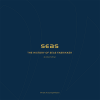The Moral Force of Indigenous Politics
Tracing the political origins of the Mexican indigenous rights movement, from the colonial encounter to the Zapatista uprising, and from Chiapas to Geneva, Courtney Jung locates indigenous identity in the history of Mexican state formation. She argues that the formation of indigenous identity is a political achievement, not an accident of birth. Using this account of the emergence of indigenous identity, Jung argues that the moral force of indigenous claims rest not on the existence of cultural differences, or identity, but on the history of exclusion and selective inclusion that has constituted the indigenous as a political group. This book will appeal to scholars and students of political theory, philosophy, sociology and anthropology studying multiculturalism and politics and culture.
• In-depth analysis on the Zapatistas, one of the most famous indigenous movements in the world • Argues that indigenous identity arises in response not to threat, but to opportunity, and is used as a political tool • Discusses the concept of \'membership rights\', and contributes to debates about liberalism and human rights
ContentsIntroduction; 1. Stepping behind the claims of culture: constructing identities, constituting politics; 2. Exclusion and selective inclusion: the rural poor in the project of Mexican state-building; 3. The politics of small things; 4. From peasant to indigenous: shifting the parameters of politics; 5. The politics of indigenous rights; 6. Critical liberalism; Appendix.
Reviews\'This is a smart and provocative book and the most interesting thing I\'ve read on indigenous politics for quite some time. Courtney Jung explains her theory well, making \'critical liberalism\' come to life for students and scholars across the disciplines - as well as general readers. Jung\'s original interpretation of indigenous mobilization in Mexico is relevant to everyone who cares about justice and diversity.\' Anna Tsing, University of California, Santa Cruz
\'This compelling work of normative political theory is deeply informed by field research on the emergence of the indigenous political movement in Mexico. Jung explores how cultural political identities are grounded in patterns of inclusion and exclusion by the state. In developing this radically constructivist theory of identity formation, she argues that democracies should neither \'privatize\' culturally-based claims for fear that their incommensurability will threaten procedural processes, nor ‘protect’ cultural identities from democratic debate.\' Elisabeth Jean Wood, Yale University and the Santa Fe Institute
- Forlag: Cambridge University Press
- Kategori: Samfunn/politikk
- Lagerstatus: Ikke på lagerVarsle meg når denne kommer på lager
- Antall sider: 364
- ISBN: 9780521703475
- Innbinding: Heftet













